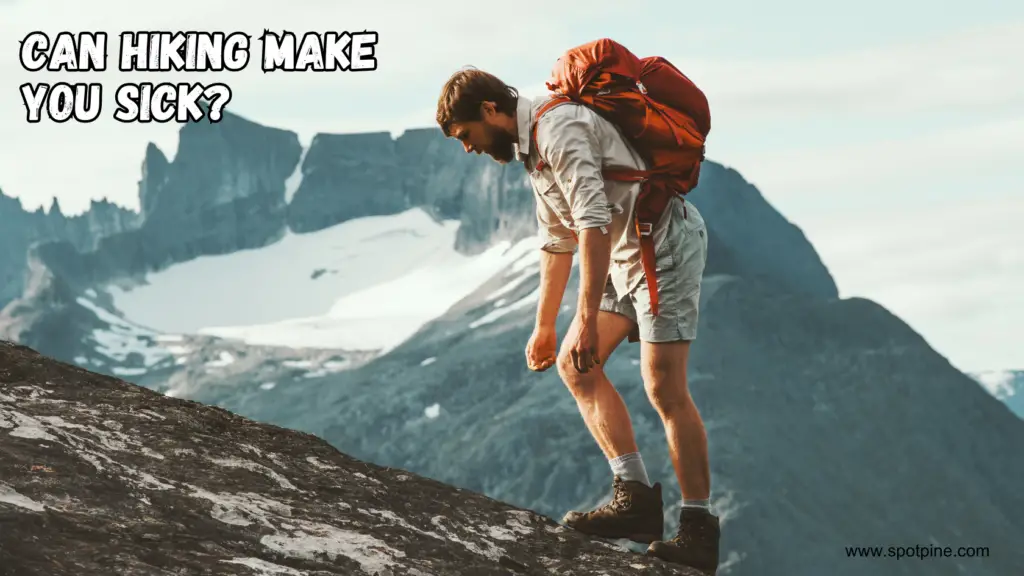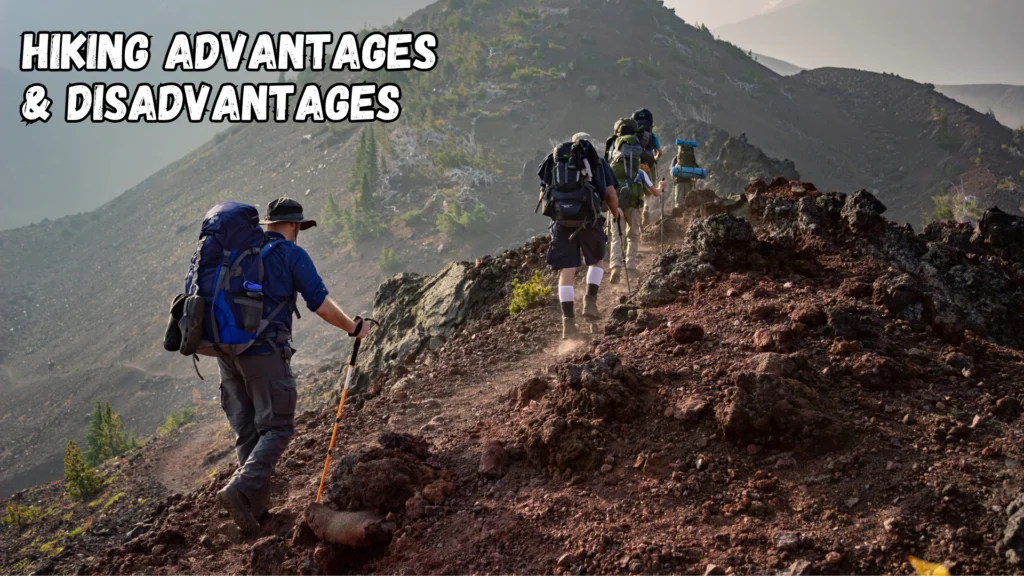If you’re an avid hiker, you know the incredible benefits hiking can have not only on your physical health but your mental health as well. However, what many people don’t consider is the fact that hiking can also make you sick.
Whether you’re hiking in a warm and humid environment or venturing off the beaten path to explore the great outdoors, many factors can contribute to illness and injury on the hiking trail. In this article, we’ll explore some of the common ways hiking can make you sick and ways to prevent these illnesses from happening.
1. Tick & Mosquito Bites
Ticks and mosquitoes are two common pests you’ll likely encounter when hiking. Not only are they annoying, but they can also be carriers of serious diseases like Lyme disease and West Nile virus.
Fortunately, there are steps you can take to protect yourself from these pests. Wearing long sleeves and pants, applying insect repellent, and staying on marked trails can all help minimize your risk of being bitten. After your hike, be sure to check yourself for any ticks and remove them promptly with tweezers.
2. Dehydration
Dehydration is a common problem for hikers, especially during hot and humid weather or at high altitudes. Signs of dehydration include dizziness, fatigue, and dark urine.
To prevent dehydration, it’s important to drink plenty of water before, during, and after your hike. Experts recommend drinking at least 8 ounces of water every 15-20 minutes during physical activity.
3. Heat Exhaustion
Heat exhaustion is a serious condition that can occur when your body overheats. Symptoms include heavy sweating, clammy skin, and nausea.
To prevent heat exhaustion, it’s important to dress appropriately for the weather and take frequent breaks in shaded areas. If you suspect you or someone in your group is experiencing heat exhaustion, it’s important to seek medical attention immediately.

Credit: www.waterfallkeepersofnc.org
4. Poisonous Plants
While many plants found on hiking trails are harmless, some can cause skin irritation or even serious illness if ingested. For example, poison ivy, poison oak, and poison sumac all contain an oily resin called urushiol that can cause an itchy rash or blisters.
To prevent skin reactions from poisonous plants, wear long sleeves and pants, and avoid touching or brushing up against any unfamiliar plants. In case of exposure, wash the affected area with soap and water as soon as possible to prevent further spreading.
5. Food Poisoning
When you’re hiking, it’s important to be careful about the food you bring with you. If food is not stored properly, it can quickly spoil and cause food poisoning. Symptoms of food poisoning include stomach cramps, diarrhoea, and vomiting.
To prevent food poisoning, be sure to pack your food in airtight containers, and store it in a cooler with plenty of ice. Avoid eating any foods that have been left out for more than two hours or that look or smell suspicious.
FAQs:
Q: Is It Common To Get Sick From Hiking?
Hiking can expose you to new bacteria and viruses. However, it is not common to get sick from hiking if you take precautions such as staying hydrated and carrying a first aid kit.
Q: What Kind Of Sickness Can You Get From Hiking?
You can get different types of sickness from hiking such as Lyme disease from ticks, gastrointestinal illnesses from contaminated water, and altitude sickness from high elevations.
Q: How Can You Prevent Sickness While Hiking?
To prevent sickness while hiking, make sure to bring plenty of water to stay hydrated. Wear appropriate clothing, use sunscreen, and insect repellent, and carry a first aid kit. Always practice good hygiene and avoid contaminated water sources.
Q: What Are The Signs Of Altitude Sickness?
Signs of altitude sickness include headache, nausea, dizziness, difficulty sleeping, and shortness of breath.
Conclusion
While hiking is a great way to stay active and explore the outdoors, it’s important to take precautions to prevent illness and injury. By taking the necessary steps to protect yourself from pests and staying hydrated during your hike, you can enjoy all the benefits of hiking without the risk of getting sick.



